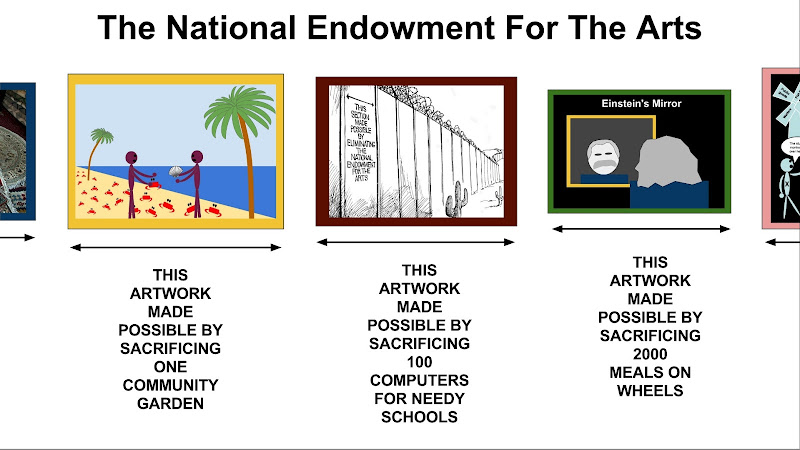- Joined
- Nov 28, 2011
- Messages
- 23,282
- Reaction score
- 18,292
- Gender
- Undisclosed
- Political Leaning
- Other
Yes. Your well-being, and that of the 320 million other US citizens. Some care about non-Americans too. You as a citizen have many ways of giving elected officials information about their priorities, such as:You expect congress to make public goods choices with due consideration for my well-being. My well-being?
• Voting
• Donations
• Communicating with elected officials
• Protests
• Contributing to activist organizations
• Running for office
Yes, that's right. Even citizens can run for office. Who knew?
Granted, it's not perfect. Then again, neither are markets, or the people who operate in them.
We also occasionally dislike the rather ruthless operations of the market. We don't like it when companies fire large numbers of their employees. We don't like it when the price of gas goes up, because there's a shortage of a good. We really don't like it when jobs move abroad, because it's cheaper to hire foreign labor. We don't like it when monopolies form, and abuse their monopoly position. Some of us don't like it when neighborhoods gentrify, and drive long-time residents out. The list goes on.
Yes... What you do is tell them.Yet here you are telling me that congress can somehow know what works for my well-being despite the fact that I've never once in my life shopped in the public sector.
Treating a government as though it is a market is an absurdity Market operations tell producers what to make, and usually do so quite efficiently. The role of government is to make sure the market can operate properly, has a peaceful means of conflict resolution, regulates markets, provide public or common goods, and protect citizens.
In the same way that the government generally sucks at predicting demand and setting prices of goods, the private market sucks at regulating itself, protecting citizens, providing public goods, and so forth.
Actually, most elected officials these days are happy to tell you what they plan to do for you. They give speeches, they have web pages, they occasionally even talk to constituents.Then again, it pays to double check. E-mail your representative and ask them what works for your well-being.


